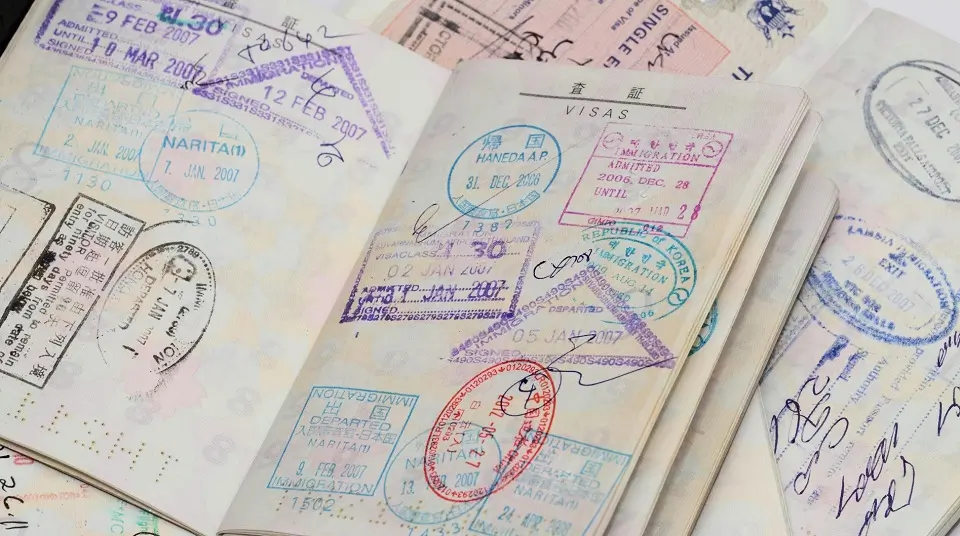Introduction to Japan’s Visas: The ins and outs of Visas in Japan

If you wish to visit Japan for a short duration as a tourist, you may have to apply for a tourist visa.
Tourists from 68 countries are allowed to enter Japan without a visa. Tourists from other countries must get a tourist visa to enter Japan.
However, if you wish to work or live in Japan longer, you will need other relevant vis types irrespective of the country you belong to.
This article will discuss the various Japanese visas for a long-duration stay and the requirements to get those visas.
Types of Long-Term Stay Visas in Japan
There are six categories of visas available for longer-term stay in Japan:
- Work visa (including Specified skills visa and business manager visa)
- Student visa
- Working holiday visa
- Spouse visa
- Permanent residency visa.
- Start-up visa
Each one has a different set of requirements and restrictions. Residents can switch between visas as well. However, typically, people don’t switch from work visas to student visas.
Please note that the following visas are not repeatedly renewable from the above list:
- Working holiday visa
- Japanese Start-up visa
- Student visa
Japanese Work Visa
You’ve decided to work in Japan. You’re searching the internet for the cheapest flight to Japan to start your dream career. However, before you fly to Japan, you must have your visa confirmed and ready by the time you land.
While in the past, many people took advantage of this free time in Japan as a tourist to secure a job and switch visas, now it’s required for newcomers to have their visas before they land in Japan.
It can be a long and complicated process, and it can take longer than three months to complete, depending on the visa you are applying for.
Applying for a visa to Japan can be complicated, so it’s important to file all your paperwork correctly and on time.
Types of Work Visas for Japan
There are 17 types of work visas available. To obtain a work visa, you’ll need proof of employment and a minimum salary of about 200,000 yen monthly to receive approval.
Not every profession is eligible for a work visa, and it’s difficult to acquire a work visa for jobs that don’t require specialized skills. For many newcomers to Japan, the Instructor or Engineer/Specialist in Humanities visas are the most common types to obtain.
The types of work visas available are as follows:
- Artists Visa: photographer, songwriter, painter, etc.
- Business Managers Visa: company president or director
- Engineer or specialist visa of Japan: IT specialist, interpreter, copywriter, foreign language teacher, marketing specialist, business consultant, etc.
- Entertainer Visa: athlete, dancer, singer, etc.
- Instructor Visa: teacher at elementary, middle, and high school (not eikaiwa)
- Intra-company Transferee Visa: the overseas employee who is transferred to a branch of the company in Japan
- Journalist Visa: news reporters, magazine journalists, editors, etc.
- Legal or Accounting Worker Visa: attorneys, judicial scriveners, tax accountant
- Medical services Visa: physicians, dentists, pharmacists, nurses
- Nursing care Visa
- Professor Visa: university professor, assistant professor
- Religious Activities Visa: monks, bishops, missionaries
- Researcher Visa
- Skilled Workers Visa: foreign chefs, pilots, sports trainers
- Specified skilled Visa
- Highly Skilled Professional Visa
- Technical Intern Visa
- Working holiday Visa
Requirement and Process for Japanese Work Visa
Before Japanese immigration issues you a work visa, they must approve your eligibility and issue you a Certificate of Eligibility (COE). To apply for the CoE, you need to submit the following documents:
- Copy of a valid passport with a minimum of six months of expiration
- COE application
- Two passport-size photos
- Documents detailing your work and salary
- Documents detailing your previous academic and professional history
You may also need to submit a criminal background check and bank records to your local consulate.
The process of obtaining a COE can take from one to three months. Getting the COE means that your visa application is approved. Once you get the COE, you apply for visa issuance, which also takes from a few days to a month.
Once you get your COE, you must apply for the visa with your COE, visa application form, and passport.
Specified Skilled Work Permits
In April 2019, Japan also introduced a new type of visa, the “specified skilled worker visa”.
This visa category addresses the labor shortages in various industries, including service, construction, and nursing care.
There are two types available: Visa 1-SSV1 and Visa2-SSV2.
The SSV1 is for five years and will allow holders a limited amount of renewals. Visa holders in the SSV1 category can bring their family members to Japan.
SSV2 holders can bring their family members and can be renewed indefinitely. Those under specified skilled visas can also not work outside their contracted field.
Considering Japan’s workforce shortage and attracting highly skilled people, Japan also came up with a Highly Skilled Professionals (HSP) visa with some added advantages.
Student Visas in Japan
Student visas are available for students who wish to study in a Japan-based program.
This visa is also offered to foreigners wishing for higher education in Japanese Universities and Japanese language schools.
However, if you’re over 30 years old and wish to study at a Japanese language school, you’ll have to show some extra requirements for a visa.
Students are typically given six months to a year to study in Japan, which can be renewed depending on your program.
While it is typical for students to work while studying in other countries, student visas are heavily restricted in Japan. Students must receive school permission to engage in work activities and can only work during certain hours.
Working Holiday Visas
Japan has mutual working holiday visa agreements with Australia, Canada, Denmark, France, Germany, Hong Kong, Ireland, South Korea, New Zealand, Norway, and the UK.
The above-mentioned inter-government agreements allow people to work part-time for up to one year in Japan.
The Japanese working holiday visa is quite popular but only available for people under 35. Moreover, this visa cannot be renewed. A person wishing to stay in Japan longer must switch to a full working or student visa.
Spouse Visas
Spouse visas are available for non-Japanese nationals married to Japanese nationals or permanent residents of Japan.
Spousal visas can be restricted depending on the marriage’s length or the person’s educational background.
The spouse visa is renewable after three years, and people on spousal visas can apply for permanent residency earlier.
However, spousal visas are subject to be revoked during a divorce.
Permanent Residency
Residents who have lived in Japan for a long time can apply for permanent residency after about ten years in the country. However, if you have an HSP visa, you can get permanent residency in Japan much faster.
Permanent residency is indefinite and allows any paid work or employment. Applying for permanent residency is very difficult and requires a lot of paperwork. You will also need a Japanese guarantor to apply for permanent residency in Japan. People normally hire a lawyer to increase their chances of being accepted.
Conclusion
Japan is a great place to live and work, and before you can embark on your dream career, it’s essential to understand the type of visa you need for a long-term stay in Japan.
For some Japanese visa types, the application process may be lengthy; however, with proper research, you can easily get your visa for Japan.


Jamila Brown is a 5-year veteran in Japan working in the education and business sector. Jamila is currently transitioning into the digital marketing world in Japan. In her free time, she enjoys traveling and writing about the culture in Japan.

